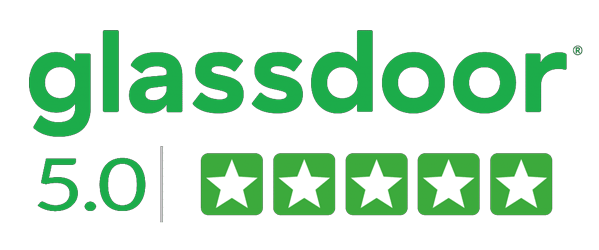
What Is an Exit Interview?
Any business conducts exit interviews for employees who are for retiring employees who leave voluntarily or are terminated. Exit interview questions vary in each case, and the method of gaining information has many forms. It could be a face-to-face interview, an online chat, a phone call, an email conversation, or even a survey with fixed questions.
In the case of a quitting employee, most exit interview questions care about “Why”. While, in the case of a terminated employee, the most important questions would discuss the positive and negative aspects of the employee’s experience with the business.
The person in charge of this type of interview could be a personnel HR specialist, a manager, or a business owner according to the company’s size.
Why Do You Need an Exit Interview?
exit interview questions mainly recognise the strengths and weaknesses that the company has from a new perspective (The departing employee). They also check the propaganda this employee will cause by talking about the previous employer, would it be positive or negative propaganda? But also, exit interviews have internal benefits in any company.
1- Helps in retaining staff
Recruitment and hiring are time-consuming and take up a lot of resources, making retaining staff a very important aspect of HR in the firm. Conducting exit interviews can help you retain staff because you can identify patterns of reasons why employees are leaving the organization. Asking relevant questions will help you know what most employees don’t like about their job, leadership, or company culture, giving you a chance to rectify those aspects.
2- They can enhance company culture and performance
Exit interviews seem to be more about the departing employee, but these surveys affect those employees in the organization. When asking questions, ask about the employee’s opinion about the company and whether or not your company delivered the promises they made when hiring the employee. The answers to these questions will help you strategize and improve your company culture and leadership, increasing the overall satisfaction of your employees and the company’s performance as a whole.
3- Gives a chance to uncover the real work environment
It is so hard to get a true sense of how your employees feel about their working environment when you employ them. Conducting exit interviews will help you get the employees’ opinions about the work environment in your firm.
4- Exit interviews are cost-effective indicators
Carrying out assessments of your business’s strengths and weaknesses may be costly and time-consuming but conducting exit interviews is cost-effective and benefits your organization immensely.
How to Conduct the Best Exit Interviews
Any exit interview needs some planning for its importance. It deals with crucial data and impressions a departing employee has, so the process should be wisely managed.
Determine the identity of the interviewer
Determining the person in charge of the exit interview is essential. It should be an HR specialist or a manager to whom the departing employee can talk frankly, without borders or concealing any data that enriches the process. A business can outsource an HR specialist so the employee feels no pressure to talk.
Design the exit interview questions
You should know if the most important questions in this phase would illustrate the workplace environment in general or specific elements, like task management, people, clarity of goals, and the organizational culture. Put exit interview questions that the departing employees can answer truly based on experience, duties, tasks, and based on their role in each workflow.
Choose the right place and the right time
An exit interview is a personal experience that the departing employee should have in private. So, ensure that the interview takes place in a private room where no one can interrupt or accidentally listen to the employee’s statements. Check that the place is convenient for the interviewee, where they can feel comfortable with the chair, desk, spaces, and room arrangement, to help them feel more relaxed.
The time of conducting the interview varies from one case to another. Suppose the interviewee has two weeks’ notice. Interviewing at the end of the first week would be a good idea. Some other interviewers carry it out on the last work day.
Inform them that their responses would be shared
It’s important to inform the departing employees that their answers to the following questions will be shared with the high board for the sake of the development of the business and covering weak points. This will make them feel more comfortable and confident with every answer they deliver.
10 Best Questions to Ask in an Exit Interview
This is a list of questions that could be effectively used in the case of an employee who is leaving voluntarily. The questions will be as follows:
1- What drove you to look for another job?
This is one of the exit interview questions that seek the main reasons for leaving. Answers vary from one employee to another based on the conditions and experiences he passed through at the workplace. Reasons for leaving differ according to employee’s needs; career-development assignments, higher salary, better benefits and compensation packages, healthier work environment, etc.
Based on the reasons discussed above, deep-rooted solutions should be considered. Putting new bonus plans, raising salaries, conducting training classes, putting new policies for a healthier work environment, etc.
2- What circumstances will return you back to our company?
The interviewer asks this question in case the leaving employees spent a long time in the company, where they know its organisational culture, workflows, operational processes, etc. It is a smart question that keeps the rapport between the employee and the company. The interviewer also knows how expensive developing a recruitment process is compared to rehiring a former employee.
3- Have your job description developed during your employment period?
This question benefits the employer from two points of view. First, the job description will be accurately updated to reflect the required duties and responsibilities, creating no gap between the departing and arriving employees. The job ad will attract fit qualified candidates. Second, this will indicate if the employees have been well compensated during the employment period or not.
4- Who is the best candidate that can replace you?
One of the best exit interview questions, as it doesn’t ask about identity, it asks the departing employee to recommend the characteristics and skills found in the candidate. This question continues to enhance the job ad details and the requirements it should include whether they are qualifications or competencies.
5- What have you loved most about your job?
The interviewer considers each employee’s personal experience in the company. From their perspective, what’s the element they will miss the most? The team, the place, the remote work culture, etc. Any characteristic the employee mentions should be considered, and taken as an important reason for candidates to apply for a job at the company.
6- What have you learned from your job?
A question that checks if the occupation allows the employee to acquire new skills or not. If an employee is overqualified, the job will be tight as his capabilities are wider than its borders. On the contrary, a qualified candidate with a small margin for learning will always be the best choice. Sometimes, the margin of learning keeps the employee in his job.
7- Have you suffered from a lack of tools or resources?
If the work is done, that’s great, but at what quality? The employer always has to seek to provide the tools and resources that help employees’ productivity increase. The question illustrates the employee’s opinion on the available tools,
are they enough, or did his work duties need more advanced solutions?
8- Have your job duties needed training that you haven’t received?
Another question is deeper into the details of developing the job the employee is about to leave. Training has a beneficial effect on the employee and the business outcomes. Therefore, the perfect employee would know the needs of the market and the new trending skills and functions that uplift any business to a higher level.
9- Are the company policies clear enough to understand?
The interviewer surveys employee satisfaction with the policies and organisational culture. Do they need development? Be more flexible, more transparent, etc. This establishes transparency between the employees and the company. If they feel that it could improve become, the company has to analyse their suggestions and check how valid it is.
10- At what level from 1 to 10, do you recommend working at our company؟
The interviewer has to get a summary of the employee’s experience in the form of a recommendation. The number the employee delivers briefs the employee’s opinion in one line, where he will say: “It’s 8 because …” knowing the reason will indicate what essentially affected the employee during his employment.
Three Common Mistakes Made During Exit Interview
Conducting an exit interview would be insufficient if the assigned HR specialist mismanaged the process. It will be useless if the process included these mistakes:
Asking the wrong questions
The major goal of an exit interview is getting the insights that help in developing the business. Tailored Questions should focus on the employee’s experience with the position in specific and the enterprise in general. The interviewer should allow the departing employee to identify issues and pain points to design effective solutions, this can’t happen without asking the right question.
Losing the link with the departing employee
During the interview, the interviewer should avoid the concept that the departing employee is someone the business is disconnected from. Any ex-employee, who that spent any period of time in the company, has to be an ambassador at his new employer. So, the interviewer has to keep the link and send a caring feeling to the employee, to avoid any bad impression from occurring.
Not properly analysing the data
Now, the interviewer has the data. Knew all the issues and pain points the ex-employee suffered. As an HR specialist, he has to analyse the data and find the roots and reasons that cause these problems. An accurate analysis creates the best solutions that save a lot of money and time for any business.
Exit interviews will help you get accurate assessments of employees’ views. They are also fundamental for company growth. Whitecollars can give you a hand in preparing exit surveys.


